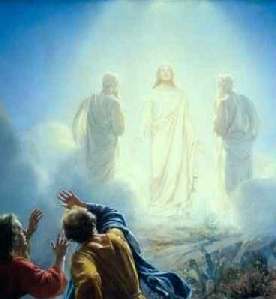1 March 2015
Homily of the Apostolic Nuncio
His Grace Archbishop Petar Rajič
Gen 22:1-2,9a,10-13,15-18; Rom 8:31b-34; Mk 9:2-10
All three readings today make reference to the role of sons in the family and the importance of the Son of God in our lives.
Abraham’s faith was put to the test when God asked him to sacrifice his own son Isaac. Though this certainly saddened and confused Abraham who obviously loved Isaac very much, out of faithfulness to God and in a sense of duty he went out to prepare this extreme sacrifice. The angels’ intervention at the last moment to spare the life of Isaac, shows us that God is not concerned so much with the destruction of the sacrifice as he is with the faithfulness in fulfilling the required task.
St. Paul stresses how God did not spare his only Son, but gave him up for us as a sacrifice for our good and our salvation. Out of love towards mankind, God preferred to give himself up in his Son, instead of asking for human sacrifices.
The Gospel passage is centered on Jesus and the amazing event of the Transfiguration of the Lord on Mount Tabor. One cannot but remain bewildered how this all happened. It almost seems like a fairy tale, something unreal, yet the disciples were with Jesus on the mountain and they were witnesses to the event.
The Transfiguration of Jesus occurred for two reasons: the first was a confirmation of Jesus’ mission. He received double approval for his future sacrifice, from the prophets Moses and Elijah as well as from his heavenly Father. It can be understood as a type of encouragement to continue upon his path, in order to fulfill the Father’s plan of salvation.
The second reason was to confirm the faith of the disciples and reveal to them the true meaning of Messiahship. The disciples had a difficult time in understanding the true meaning of Jesus’ mission. They were expecting a political messiah, one who would liberate them from the occupying Roman forces and give them their own country back. Jesus’ Messiahship meant sacrificing himself, his own life, for our good. This was the reason why he had to take upon the supreme sacrifice of the cross in order to offer a free sacrifice of love for mankind.
The word transfiguration come from transfigure which according to the dictionary definition means “a change of form or appearance so as to elevate or idealize”. Jesus went through a change of appearance before his disciples so that they could see his divine glory for a brief instant. The disciples were given a sneak preview of the glory of heaven that awaited them as well.
In a way we can say that the Transfiguration of Jesus was the moment when Jesus set aside his human appearance for a short while and revealed his divine image to his closest friends. The season of Lent helps us transfigure ourselves, change our appearance, take off our masks in order to be who we really are. Our personal uncovering of our own masks helps us see that we are indeed truly human and in need of God’s mercy in order to overcome the shortcomings of our human nature.
This is why Lent helps us put on Christ. By listening to Jesus we are changed, by following him we become like him, by loving him we begin to love others. Let us therefore not be afraid to reveal ourselves, take off our masks and rid ourselves of any sinful habits in order to receive God’s mercy and discover our true selves, for this is the beginning of our transfiguration in Christ and a reconfirmation of our sonship to the Lord.


